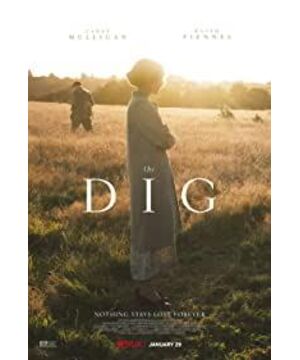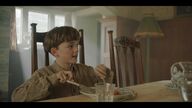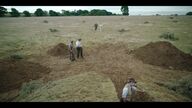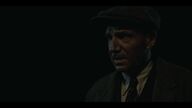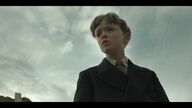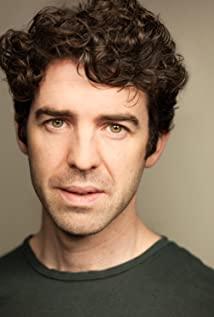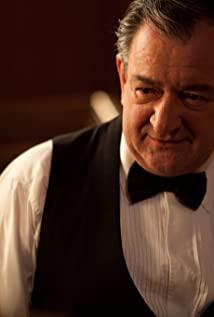I like this film very personally, neat, delicate and gentle.
Whenever life dies, people will always have some thoughts about life in the deceased, meaning, value, future, past.
We die, rot, and no one lives forever.
But there are still some people, some civilizations, some in the past, who have buried traces in history and time, leaving fingerprints on the lips of the Terracotta Warriors.
Since life will eventually pass away, civilization will eventually dissipate, and wars and disasters can destroy everything, what is the significance of us looking for traces of history and life?
The movie "Discovery" gave the most gentle answer.
The story tells that during World War II, just before Britain entered the war, Mrs Prety hired an excavator, Basil Brown, to excavate tombs on the land she owned and found the 6th century "Dark Age" Anglo-Saxon. The tombs, which became known as the Sutton Hoo site, are proof that they had a civilization of their own, not barbarians.
There are multiple meanings in the film about life and death.
The most intuitive line is the excavation of the tomb of this warship. From the struggle between museums and archaeologists over the ownership of tombs and treasures, to the discussion about the excavation of future generations to confront the remains of ancient people in the tombs, this is the main story of the film.
At the same time, Britain was about to declare war on Germany. People are full of worries and uncertainties about the future of the country. What happens to the unearthed treasure? Can the ruins survive the war?
The owner of the land where the burial is located, Mrs. Preti, whose husband was a former military officer, later died. Her own heart valve was damaged due to rheumatic fever when she was a child, and her time is running out, and she will eventually leave a young child to live alone in the world.
Mrs. Preti's cousin Rory, who loves photography, came to help excavate the tomb and took many precious photos. At the beginning of the war, he had to be called up to become an Air Force pilot, and everyone knew he was going to die.
While excavating the tomb, Basil Brown was buried by a mound of earth and nearly died.
A military plane crashed into a river not far from the site, and the pilot failed to survive...
We die, rot, and no one lives forever.
But we haven't really died since humans left their first palm prints in ancient caves.
The film also discusses the meaning of life.
Basil Brown has been engaged in archaeological digging all his life, but because he dropped out of school at the age of 12, he has no education, no certification, and digs soil for money. In the eyes of archaeologists, he is simply a trivial person.
Has Basil, whose contribution has not been acknowledged for many years, has no value in life?
Basil's dedication to the work of connecting history and the future is not about pursuing who he is, but about telling future generations who they are.
Peggy, a girl from the Department of Archaeology, is not in harmony with her husband. While excavating the tomb, she and Rory developed a sympathetic relationship with each other, but the fact that they were already married stalled their relationship.
After Rory went to the Air Force to report, Peggy finally burst into tears when he saw the photo he left behind of a table full of himself. Mrs. Preti told her that life is too short, you have to work harder, cherish a little more, and seize every moment.
We die, rot, and no one lives forever.
If a thousand years are fleeting, what are we left with?
We touch the fragments of history, irrespective of past and present, to tell future people who we are and where we came from.
We have existed in this world, and we have left the miracle of life.
Day after day, year after year, week after week.
2020 has passed, and so will the Year of the Rat.
Some people leave forever, some people lose forever.
Life is always without regrets.
As Basil says to Mrs Prety's son Robert in the movie, there are things we do our best and still can't do.
I also won't be here to comfort you, who may not have had a good year, and everything will be fine.
But just as the treasures unearthed from the Sutton Hoo ruins survived the war in an underground station, and just as the British archaeological community finally gave Basil Brown the signature due, our existence will eventually leave civilization behind.
We witness history, and history also witnesses us.
-END-
Original: Yi Xiaomeng
First published on the public account: a little movie
View more about The Dig reviews


